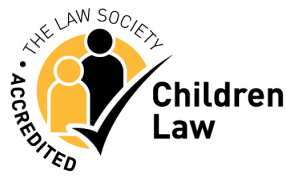As part of Children’s Mental Health Week, we are looking at divorce and children’s mental health. In this article we discuss some of the ways that children can be affected and provide tips and information on how to best proceed through matrimonial dispute to safeguard your children’s mental well-being.
Divorce brings many changes
When parents decide to separate or divorce and no longer live together, children can often feel that their world has been turned upside down. Commonly there are changes in the amount of time a child might spend with each parent; there can be a change in mood or stress levels of their parents and families may feel the stress of financial hardship. Practical things may also change such as children may be required to move home or change schools. All these things undoubtedly can affect the mental health and behaviour of any children involved.
A difficult and stressful experience
Divorce can be a difficult and stressful experience for all involved and can have a particularly significant impact on children if they feel stuck between two parents who are in the middle of an acrimonious divorce. Staying together for sake of the children may also not be the best option. Children who live in homes where parents frequently argue or where hostility and discontentment are part of their daily lives may be at a higher risk for developing mental health issues and behaviour problems.
Becoming parenting partners
Divorce or separation does not necessarily need to lead to a detriment to the well-being of children involved. Divorce for a couple with children should not be viewed as putting an end to a relationship but transitioning from one relationship (marriage or co-habiting) to another type of relationship (parenting partners). There are several ways that we recommend to our clients that this can be done successfully.
Parents who are separating can help their children adjust to the new family situation by making sure that the children know they still have two parents who love them and will continue to care for them. Parents should protect their children from adult worries and responsibilities and importantly they should make it clear that the responsibility for what is happening is theirs and not the children’s.
The following things will help your child adjust to the new situation:
- It is important to be open and talk to your child. Depending upon their age, they need to know what is going on and they need to know it is alright to ask questions in a stress-free conversation. It is good to demonstrate that you are interested in your child’s views whilst making it clear that ultimately decisions will be made by you and your ex-partner.
- Children should be reassured that they will still be loved and cared for by both parents. A good way to do this is to make time to spend with your child and be reliable about arrangements to see them.
- As far as possible, it is a good idea to carry on with usual activities and routines, like seeing friends and members of the extended family. If you make as few changes as possible, it will help your child feel that, despite the difficulties, loved ones still care about them and that life can be reasonably normal.
- Don’t pull your child into any conflict that arises or use your child as a ‘weapon’ to get back at your ex-partner or ask them to take sides.
Mediation
We generally encourage our clients to make solid efforts to reach a smooth agreement regarding children custody disputes. However, when there is continuing conflict in divorce or separation that is difficult to resolve between two parents, then a mediation service can often help the situation. Mediation is a way of sorting any differences between you and your ex-partner, with the help of a third person (a mediator) who won’t take sides. Mediation is not relationship counselling. It can help you agree on the details of how you’ll look after your children, such as where they live, when they spend time with each parent, when and what other types of contact take place (phone calls, for example) and child maintenance payments.
A mediation service can involve children if they are old enough to take part and it is appropriate to do so. It will allow them to express their opinions in a safe and stress-free environment and can also facilitate positive relationships between children and both of their parents.
Helping your child cope with changes
If you are finding it difficult to help your child cope, you may want to seek outside help. Your general practitioner will be able to offer support and advice. Some families may need specialist help from the local child and adolescent mental health service. However, if managed sensitively, most children can adapt well to their new circumstances and do not have difficulties in the longer term.
If you would like any further information about any disputes concerning children during a divorce or separation or if you would like to discuss any of the above with a qualified family solicitor, please call us on 01244 312306.
This article is for information purposes only. Its contents do not constitute legal advice and readers should not regard this article as a substitute for detailed advice in individual instances.













